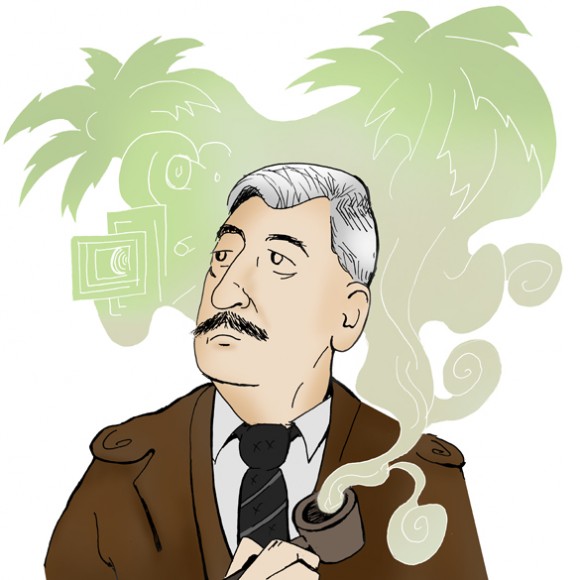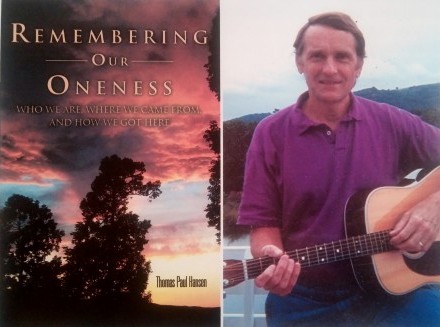 In 1931, William Faulkner found himself face to face with actress Tallulah Bankhead at a New York party. “Why don’t you write me a picture?” she demanded of the Southern writer. Celebrated by the New York literary intelligentsia (for The Sound and the Fury, As I Lay Dying and Sanctuary) but not by the public, Faulkner was intrigued by the concept of a surefire paying gig. After his agent secured him a contract, on May 7, 1932, he reported to MGM studios, embarking on a 22-year career as a screenwriter.
In 1931, William Faulkner found himself face to face with actress Tallulah Bankhead at a New York party. “Why don’t you write me a picture?” she demanded of the Southern writer. Celebrated by the New York literary intelligentsia (for The Sound and the Fury, As I Lay Dying and Sanctuary) but not by the public, Faulkner was intrigued by the concept of a surefire paying gig. After his agent secured him a contract, on May 7, 1932, he reported to MGM studios, embarking on a 22-year career as a screenwriter.
From 1932 to 1954, Faulkner alternated between his home in Oxford, Mississippi, and a bungalow in Los Angeles working for various directors and studios. Altogether he worked on some 50 films, but if not for a request by legendary director Howard Hawks for his assistance on a film in the same year he arrived, his stint in sunny California may have been significantly shorter. For it was his collaboration with Hawks over the years that led to his most notable screen work, including To Have and Have Not and the film noir classic The Big Sleep. Although his time in Hollywood is generally perceived as a footnote to his status as THE Southern novelist, if nothing else it enabled him to pay his bills and allowed him to pursue his and the critics’ true love—his fiction.
Gadfly takes a look at the lesser known side of him—Faulkner the screenwriter. We spoke with the writer’s friend and foremost biographer, Joseph Blotner, about Faulkner and his time in the celluloid city.
How did William Faulkner arrive in Hollywood?
JB: He was asked to do a script for a short story of his called “Turn About” that Howard Hawks made into a film. Of course, in the early 30s, particularly with his novel Sanctuary, he got a lot of attention and was liked very much by Hawks. He began doing scripts in large part because he needed money.
Was Hawks the primary reason that Faulkner made his way out there?
Pretty much so.
Did they work closely or did Hawks ask Faulkner to write and then re-work the script submitted?
Yes to both. He liked Faulkner’s work which he based his films on, but he also knew he wasn’t an expert at it. Faulkner tried to teach himself the techniques of screenwriting as he went along, but the thing that Hawks valued in Faulkner was his fertility of invention, his capacity for ideas.
Faulkner had a propensity to write page after page of dialogue that was ultimately unusable. I think Humphrey Bogart once remarked about some of his scripted dialogue, “I’m supposed to say all that?” Didn’t much of his script work get re-written?
Yes, but of course by and large that is the way scripts get written. Very often additional writers will be hired to re-write, to collaborate. That was pretty much the way it went in Hollywood. It doesn’t mean that he was thought unsatisfactory. Faulkner was regarded by Hawks as imaginative even though he would write much more than people like Humphrey Bogart would be able to memorize or say.
In Hollywood, Faulkner seemed to be a fish out of water, or an alien among them. Why was he so unhappy or discontented being there?
He said, “It wasn’t my racket,” in effect. His principal line was novels and short stories. He had the feeling that though he was earning the money he needed he was spending time that ideally would have gone to his prose fiction, to the works he had in mind for a long time and wanted to get to. But Hollywood was the readiest place for him to earn money.
Although Faulkner worked on a countless amount of films, didn’t he only receive actual writing credits for a few?
Yes, I think he got credits for something like five or six.
How many of his books and short stories were made into films?
Not a large number. There were Turnabout, Land of the Pharaohs and Sanctuary, for instance.
Two of the films he is best known for are To Have and Have Not and The Big Sleep. They are both adaptions of other writers, Hemingway and Chandler. How did he feel about having to adapt other novelists’ works?
I think he had a very professional workman-like approach. He was hired to do a job, signed the contract and did the best he could.
He had a high regard for Hemingway didn’t he?
Yes.
Were they good friends or…?
They never met.
Really? Wasn’t Faulkner Hemingway’s favorite contemporary writer?
I wouldn’t say that he was Hemingway’s favorite, but he was much admired by Hemingway. He had certain technical criticisms of Faulkner’s style, but at one point Hemingway said “I would be happy just to have managed him.” You know, using the lingo of boxing, to have been his manager.
How much did Faulkner have to do with the final version ofThe Big Sleep?
Actually, I would not try to use numbers or percentages. It becomes very difficult when it is a collaborative work. Now in other instances, he worked on a long film called The De Gaulle Story, about sharing the gold in the Second World War. That was pretty much his own with very little collaborative work, but in some of the others, one such as The Big Sleep, it was a collaborative process.
In the film Barton Fink by the Coen Brothers, there is a Faulkner-inspired character who is drunk in his scenes. One thing that is always mentioned in context with Faulkner is alcohol. Was he an alcoholic?
It becomes a matter of definitions. Yes, he did drink. He drank a good deal. Although he at one time quit for a considerable time. I guess partly to show that he could discipline himself that way. He had episodes which have some of the characteristics of what we call alcoholism. And there are a number of ways of defining alcoholism. He sort of put himself out on more than one instance when he drank, and was unable to work. He said that he didn’t drink when he wrote. That is not to say that he did not at the end of a work day have cocktail time, because he did.
What influence did it have on his writing?
His cousin said to him, “Bill, do you write when you drink or when you’re drunk?” And he said, “No, but sometimes I get ideas.”
What do you see as some of the central themes of his writing?
That’s pretty large. In his Nobel Prize acceptance speech he tried to point a way to some of the things that are more fundamental. He believed in the human, the essence of man. In his speech, he said he thought man would survive, that he would not blow himself up as he put it. He believed in human dignity, that people by and large did the best that they could. He believed that the human experience was a tragic one to some extent. In dramas such as those that Eugene O’Neill worked on and novels such as those the great Russian and French writers wrote, he saw a representation of life as tragic and he said, “One man has put it in eight words. He was born, he suffered and he died.” That’s stating the dark side of it, but, again, in the Nobel Prize acceptance speech he said he thought that people did the best they could.
Ultimately, do you think his experience with Hollywood ended up detracting from his fiction writing?
I think his best work was in his novels and short stories, and that his time could have been better used doing what he did best. But Faulkner sometimes enjoyed things he did in Hollywood. But there is no question in my mind at all that if he had been able to support himself and his family without doing film scripts he would have.
Did you know Faulkner very well?
I knew him for just under six years. For the first two years he was a writer in residence at the University of Virginia and he would return each year. My wife and I would see him and Mrs. Faulkner and other members of the Faulkner family. On social occasions, we would go to Little League baseball games, football games and track meets and so on. In the classroom, my colleague Fred Gwynn and I would have our classes ask him questions. So we had on the one hand a professional relationship and on the other hand a social one.
What was it like to know him?
You were conscious of being with a genius. He was a person of extraordinary talent and intellect, a friendly person but very inner directed and very shy—the most extraordinary person I have ever met.
Faulkner’s screenwriting credits: Today We Live (1933), The Road To Glory (1936), To Have and Have Not (1944), The Southerner (1945), The Big Sleep (1946) and Land of the Pharaohs (1955)
This article originally appeared in the February 1998 issue of Gadfly.


